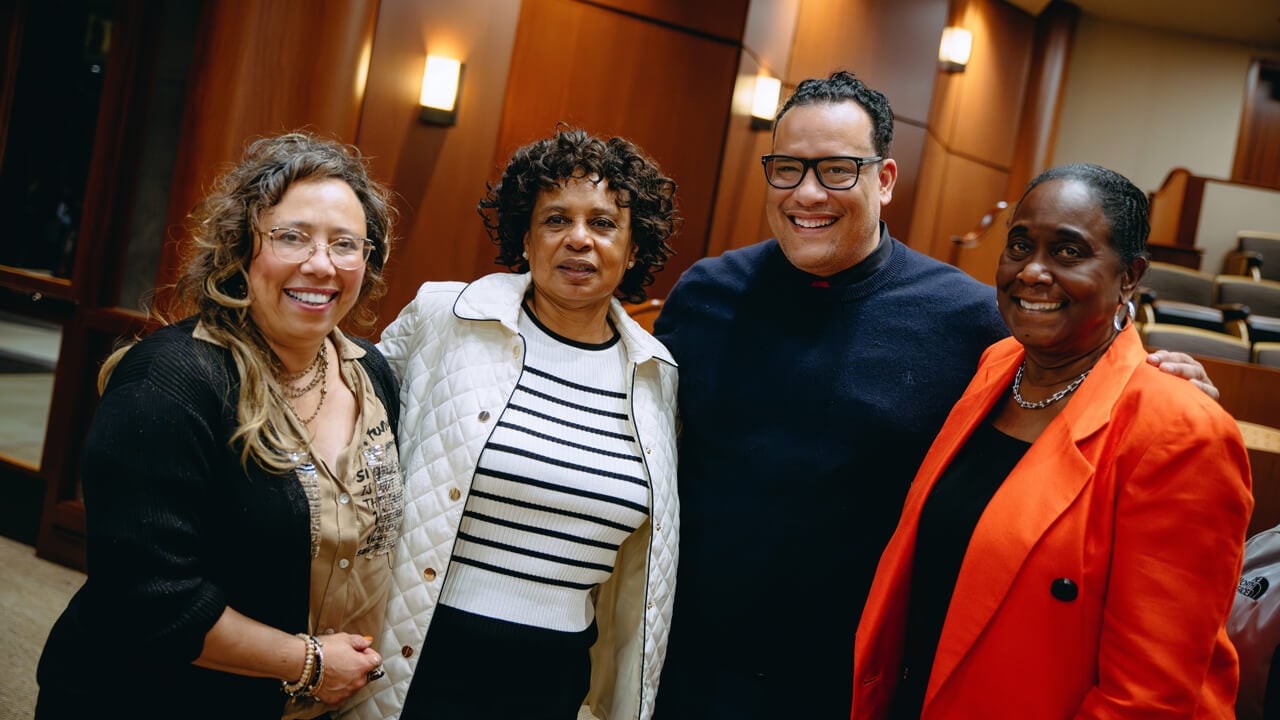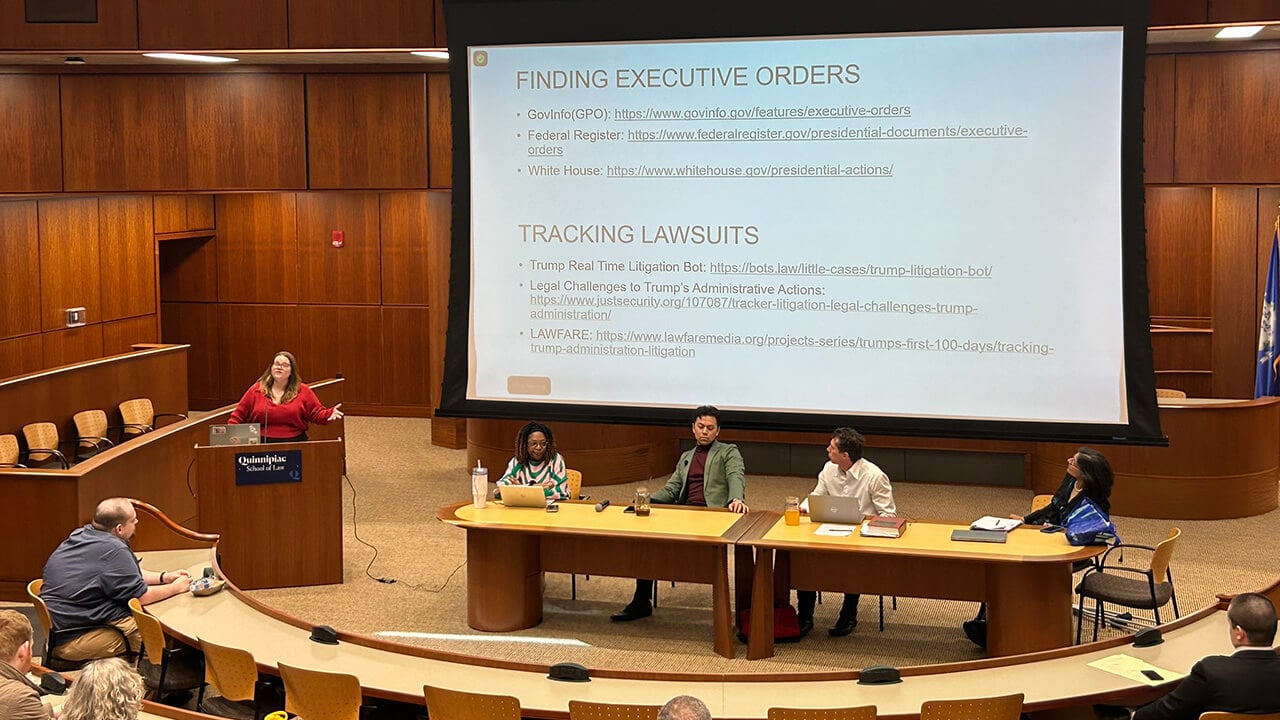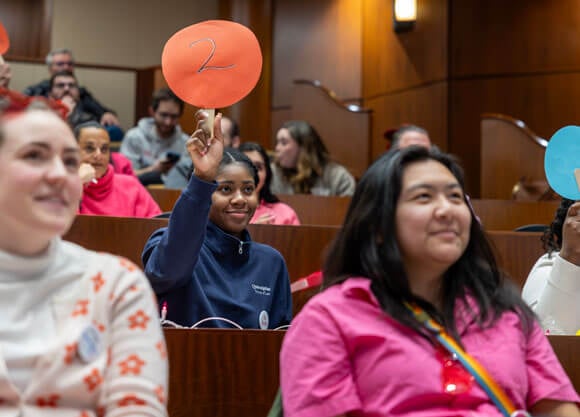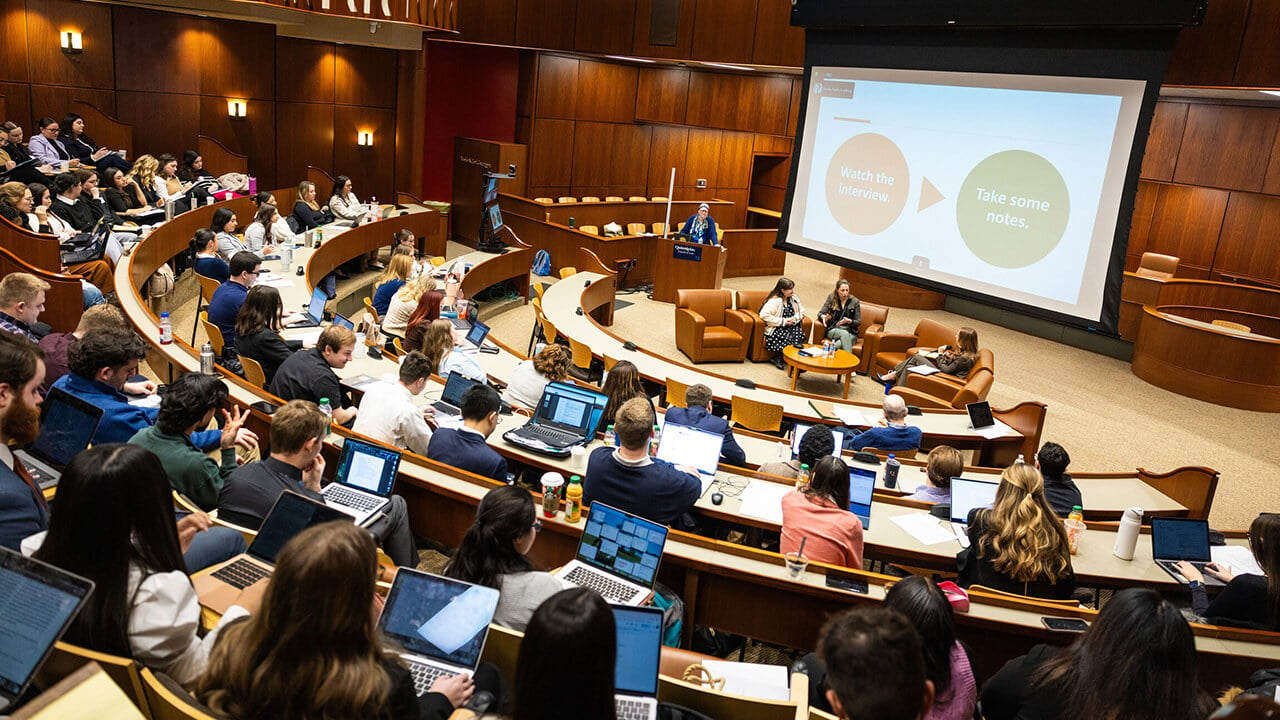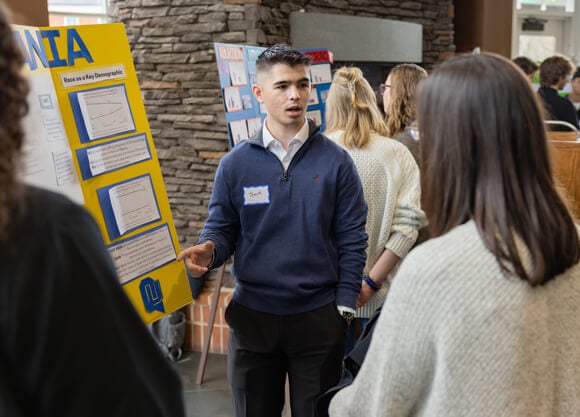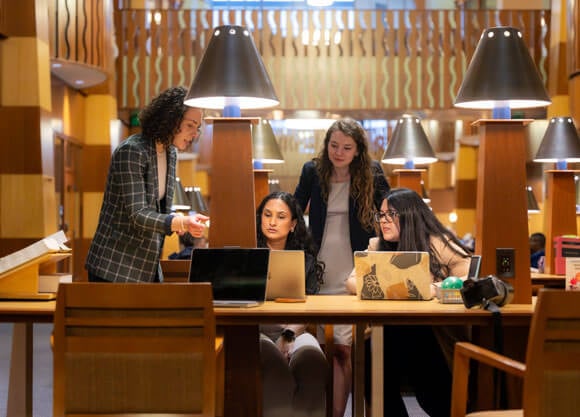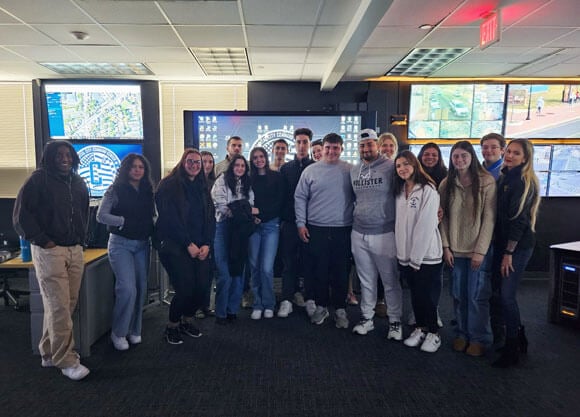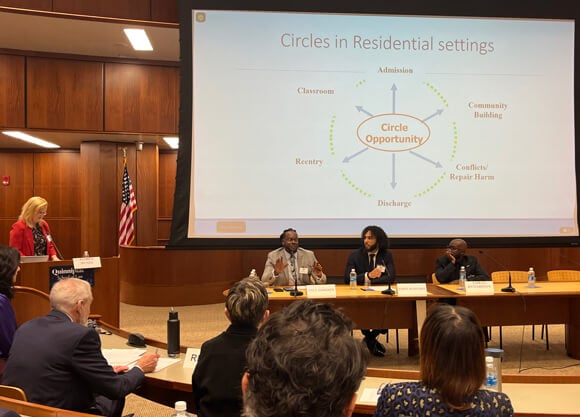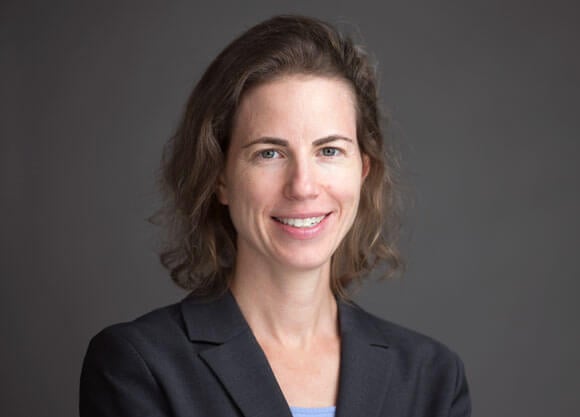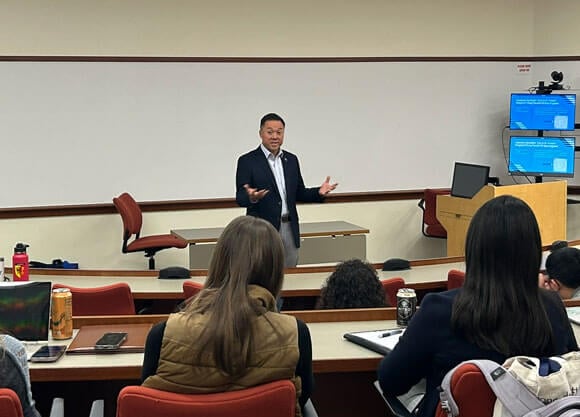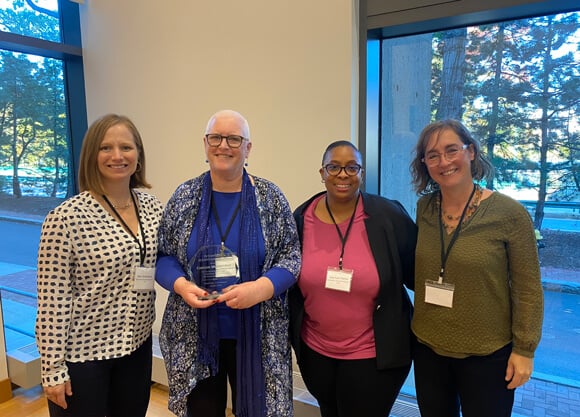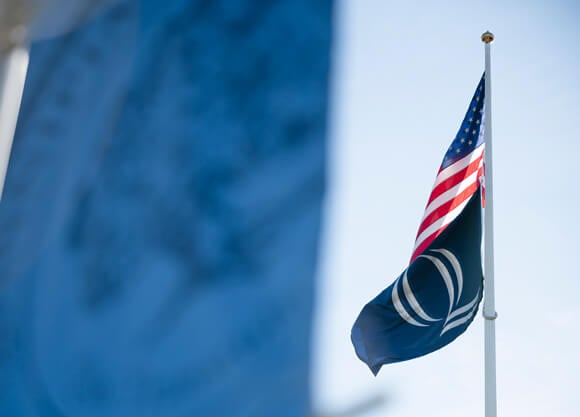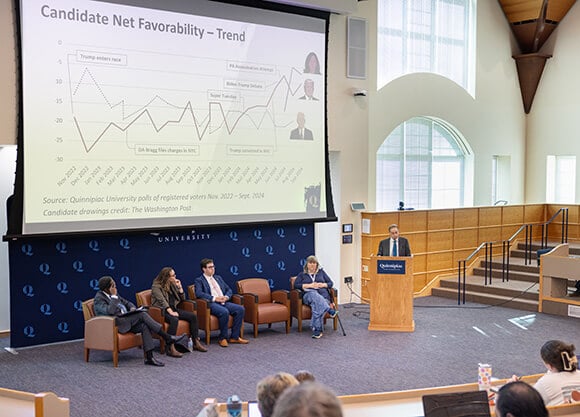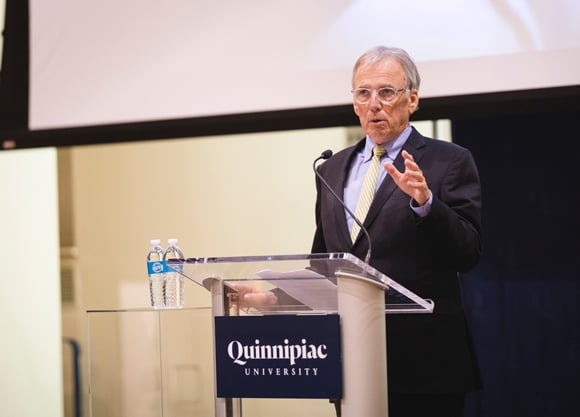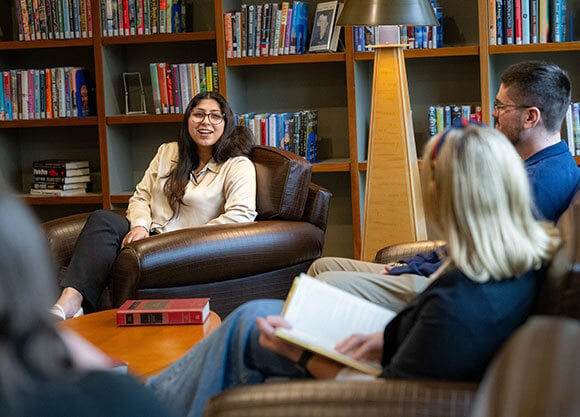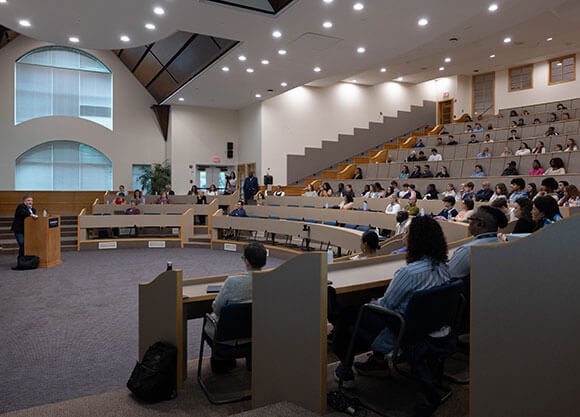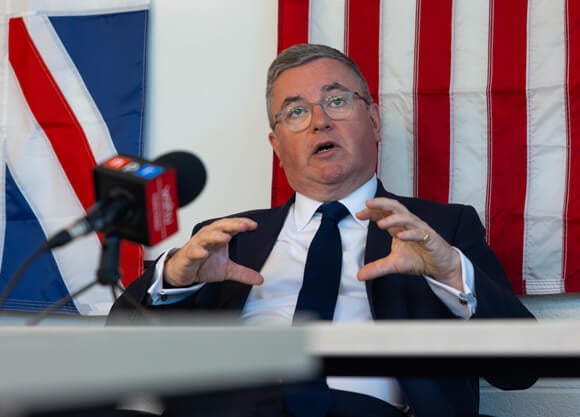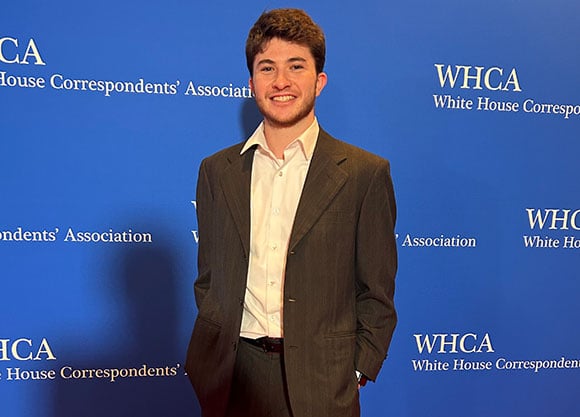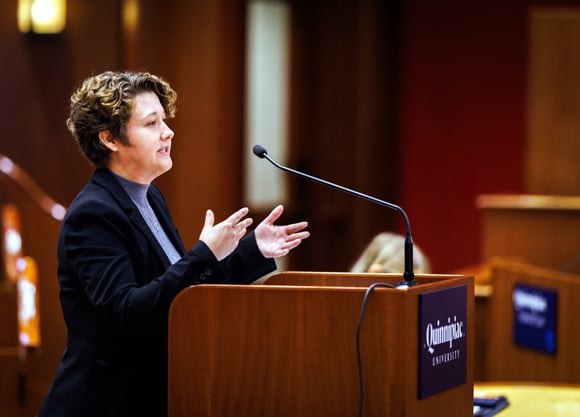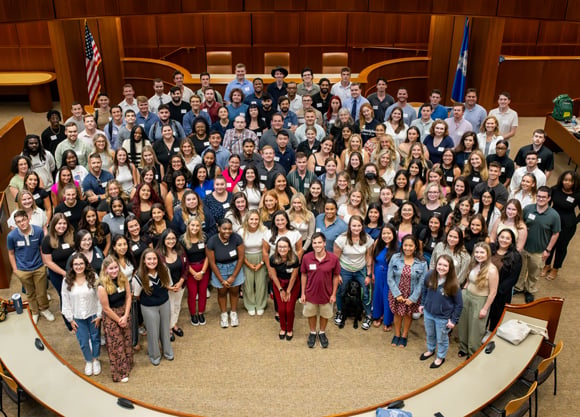
Each year, the ceremony features the presentation of two special awards, the Thurgood Marshall Award and the Community Service Award.
“Tonight, we have the honor and pleasure of recognizing two incredibly special individuals for their achievements and contributions toward the advancement of civil rights, equal opportunity, educational equity and justice,” said BLSA president Mia Gratacos-Atterberry, JD ’24.
The Community Service Award honors an individual for their outstanding commitment to community service and contributions to communities of color on the local, regional and national levels.
The Thurgood Marshall Award honors the legacy of Justice Thurgood Marshall, the first Black American to be appointed to the U.S. Supreme Court, by honoring an outstanding figure in law, education, or politics exemplifying Marshall’s dedication to improving society through the advancements of civil rights, civil liberties and human rights.
Past recipients of the Thurgood Marshall Award have included Hillary Clinton, Johnnie Cochran, former UN Ambassador Andrew Young, Carlotta Walls LaNier of the Little Rock Nine and U.S. Attorney Vanessa Avery, among many others.
The March 27 reception and awards ceremony took place in the Brooke A. Goff Courtroom on the North Haven Campus. The event gathered award recipient family members, representatives from area organizations including the New Haven NAACP Chapter, Quinnipiac BLSA students, faculty, administration, distinguished alumni and student family members.
In addition to celebrating the achievements of the night’s remarkable recipients, Gratacos-Atterberry said it was imperative for those in attendance to also reflect on and acknowledge the challenges that persist in our society.
“We find ourselves at a critical moment in time, grappling with the issues that strike at the very core of our nation’s principles,” said Gratacos-Atterberry. “The Supreme Court’s affirmative action decision this past summer is a stark reminder that the struggle for equal opportunity is ongoing. The court’s call for dismantling of Affirmative Action threatens to undermine the progress that we have made as a nation towards true diversity, equity and inclusion. However, what is more concerning to me is the story the majority aims to tell about the American identity.”
Gratacos-Atterberry debated the Supreme Court’s opinion referencing Associate Justice John Marshall Harlan’s 1896 dissent of the principle of separate but equal (Plessy v. Ferguson), in which he stated, “…our constitution is colorblind.”
“While this idea is very appealing, it ignores the deeply-rooted history of racism that’s present in our nation and in our founding,” Gratacos-Atterberry said.
Noting that, in the same paragraph of his dissent, Harlan also “…proudly professed the dominance of the ‘white race’ and its superiority over all others,” Gratacos-Atterberry said the Supreme Court’s decision to embrace the idea that the Constitution is colorblind not only ignores America’s history of racism, but glosses over the progress made as a nation in redefining and reshaping what it means to be American.
In the face of these challenges, Gratacos-Atterberry said inspiration is drawn from Marshall as the first Black Supreme Court justice who fearlessly fought for justice and equality and reminded the nation of what a Supreme Court justice could look like.
“We also draw inspiration from Judge L. Scott Melville, graduate of Howard University and one of the first Black judges to be appointed in the state of Connecticut. And we draw inspiration from Miguel A. Cardona, U.S. Secretary of Education and the first Latino to serve as Connecticut Commissioner of Education. They are inspirations to young Black attorneys and attorneys of color to champion the cause of justice and equality and are a reminder to us all that glass ceilings are meant to be broken,” said Gratacos-Atterberry.
Due to being unexpectedly called away from his plan to accept his award virtually, Cardona expressed his gratitude through Gratacos-Atterbery, who accepted the Community Service Award on his behalf.
Although an unanticipated event also prevented Judge L. Scott Melville from being present, his wife Sonja and family attended on his behalf. Melville’s son, Douglas Melville, accepted the award for his father.
He recounted how his father, who is now 90 years old, left New Haven at the age of seven to be raised in Alabama by an aunt and uncle.
“His uncle was General Benjamin O. Davis Jr., who was the commander and the creator of the Tuskegee Airmen,” said Melville.
He shared how Davis and the airmen were an inspiration for his father, who wanted to be a pilot. When it was learned that his vision would not support that goal, at his uncle’s advice, Melville entered the military as clerk. He then followed another recommendation from his uncle to pursue a career in law. He earned his degree from Howard University in 1962.
“The reason this story is so important to tonight is that when Thurgood Marshall used to rehearse when he was presenting to the United States Supreme Court, many people don’t realize it, but the actual Supreme Court building was segregated,” Melville said. “When other attorneys could role-play in the chambers what they were going to present, Thurgood Marshall wasn’t able to do that. So, he went to Howard University and he used a group of students to role play all the different characters and assignments. And my dad was one of those students. This became something my dad never forgot. It inspired him in his law practice and to become a judge.”
Melville also recognized his father’s and his family’s appreciation and close connection with Quinnipiac professor of law Marilyn J. Ford. Ford is also Quinnipiac BLSA faculty adviser.
Following the night’s presentation of awards and presentations of certificates of service to graduating BLSA members, Ford shared her appreciation for the students’ hard work and the importance of this annual program.
“It’s been such a pleasure to work over the years with these wonderful young people, who just keep this going. One of the reasons I probably don’t retire is because I am so much in love with the students I work with and those that work on the Thurgood Marshall program every year,” said Ford.
Ford also thanked Judge Melville for impacting her life and many others. She personally thanked him and Sonja Melville for opening their home to her and her husband when first arriving in Connecticut. Judge Melville also assisted with Ford’s introduction to instruction at the University of Bridgeport School of Law (later Quinnipiac School of Law) and supported students through the years with programs including a clinic placing students in his and other judges’ offices.
“Scott has done an awful lot for me personally and for this law school,” said Ford. “I was more than happy to nominate him this year and I’m so happy that this board, this year, decided to take that.”
In this Article
Stay in the Loop
Quinnipiac Today is your source for what's happening throughout #BobcatNation. Sign up for our weekly email newsletter to be among the first to know about news, events and members of our Bobcat family who are making a positive difference in our world.
Sign Up Now